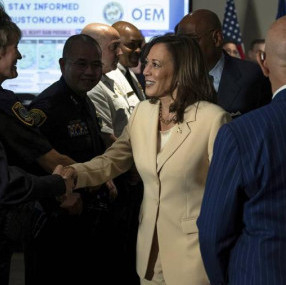The upcoming Olympic Games in Sochi have become one of the factors of the Circassian peoples’ acute interest to historical issues. Already now, part of Circassian organizations abroad is against running competitions in Krasnaya Polyana, which originated as a settlement on the place of final pockets of resistance of Circassians during the Caucasian war - Kbaade aul.
It has been suggested that the idea itself of an international sporting event in the region of Sochi contradicts Circassians’ tragic ethnic memory of the events of the period of the end of the Great Caucasian War of the 19th century, on the 150th anniversary of which the Games just falls, as well as the letter and spirit of the Olympic Charter, with which the official Tbilisi also tries to juggle, promoting the initiative of boycott against the Olympics, and trying to encourage in this regard the corresponding North Caucasian overseas diaspora.
During the Olympics in Vancouver the Circassian Cultural Institute in New Jersey, USA, held a rally against plans to host the Olympics in Sochi. The signal from overseas was heard. In November, the Georgian Parliament established a commission for countering the Olympics in Sochi, announcing its intention to launch an international media information campaign. The culmination of the ‘Circassian measures’ of Tbilisi was the adoption on May 20, 2011 by the Parliament of Georgia of a resolution on recognition of ‘genocide of the Circassian people.’
In fairness it should be recalled that in 1992 the Supreme Soviet of the Kabardino-Balkar SSR adopted a resolution “condemning the genocide of Adygei (Circassian) people during the Russian-Caucasian war,” which proclaimed the death of Circassians in the years of 1760-1864 ‘genocide’ and proclaimed the day of May 21 “The Day of Remembrance of Adygei (Circassian) People - Victims of the Russian-Caucasian War.” In November 2006, public associations of Adygea, Karachay-Cherkessia and Kabardino-Balkaria appealed to Russian President Vladimir Putin to recognize the genocide of the Circassians, and in 2010, Circassian delegates made a similar request to Georgia.
In short, the history of the question is as follows. In 1864, after Highlanders’ defeat in warfare they had to descend into the valley, where they were told that everyone can stay there only after adopting Russian citizenship. The others were offered in two and a half months to move to Turkey. About 400 thousand people (including Circassians) were settled on the outskirts of the Ottoman Empire. Their settlements became Turkish outposts in the Balkans and on the territories of modern Syria, Lebanon, Jordan, Iraq and Israel.
Today the official Tbilisi is a stage on which various activities in the North Caucasus issues are rehearsed and conducted. Saakashvili’s government also provides this stage to foreign entities. At these events, various issues are given a dry run and evaluation and, depending on the assessment of their effectiveness and relevance, one or another program is formed.
Recently, the Georgian president stubbornly continues to assert his vision of ‘a free Caucasus’, enthusiastically promoting various political and information projects designed to additionally ‘warm up’ if not the North Caucasus, then the situation around it. The ‘Circassian issue’ is actively involved; the liberalization of visa regime with the republics of Northern Caucasus is declared; TV is broadcasting in Russian in the region.
In autumn 2010, President Saakashvili came forward in UN with an initiative to create a ‘Caucasian confederation’. This statement is assessed by experts as a proposal of the official Tbilisi to conduct a ‘new’ North Caucasian policy, as an attempt to break through isolation from the North Caucasus and Georgia’s getting the leading role in the region. Then a decision to impose visa requirements on citizens of Russia’s seven North Caucasian subjects came into force.
The Georgian authorities are not limited to the Circassian topic. The Fund of Caucasus is intensifying its work to also raise issues of Georgian-Dagestan relations. Recently, Tbilisi has paid considerable attention to the situation of the Tsez people in Dagestan. At the end of last year the Parliament received a delegation, which in the name of Tsez addressed to leaders of the country with complaints about their ‘terrible plight’.
Georgian politicians and experts take Islamic extremism with enough apprehension That is why many opponents of Mikhail Saakashvili in the country have taken a very skeptical view of the idea of liberalization of visa regime with the North Caucasian republics. Possible cooperation with the Islamists on anti-Russian basis can cause unwanted reaction for Tbilisi from its main ally - the United States. In any case, so far Washington half-heartedly considers the cooperation with North Caucasian nationalist movements.
Attempts to ‘remove barriers’ from the North Caucasian region not counting Moscow are fraught with internal problems for Georgia itself. Islamist militants can quite comfortably cross the border with Georgia. A practice of organizing an ‘intra-Georgian Ichkeria’ in the Pankisi Gorge took place as far back 1990s.
Georgia’s aggravation game also creates for Tbilisi a range of foreign policy problems. Recognition of the ‘Circassian genocide’ deprives Tbilisi of moral right to refuse the Armenian side, which had repeatedly appealed to Tbilisi to recognize the genocide of Armenians in the Ottoman Empire, which will bring Georgia to make a difficult choice between Turkey and Armenia. Being composed of a problem Armenian-populated Javakheti region, it is dangerous for the Georgian government to spoil its relations with Armenia. It is also inconvenient for Tbilisi to quarrel with Turkey, the other big neighbor.
Tbilisi’s anti-Russian position in the North Caucasus plays into the hands of separatist and extremist movements in the region, which creates a danger of penetration to Georgia of Islamic terrorists having a claim on the establishment of a ‘Caucasus Emirate’ including on the Georgian territory.










